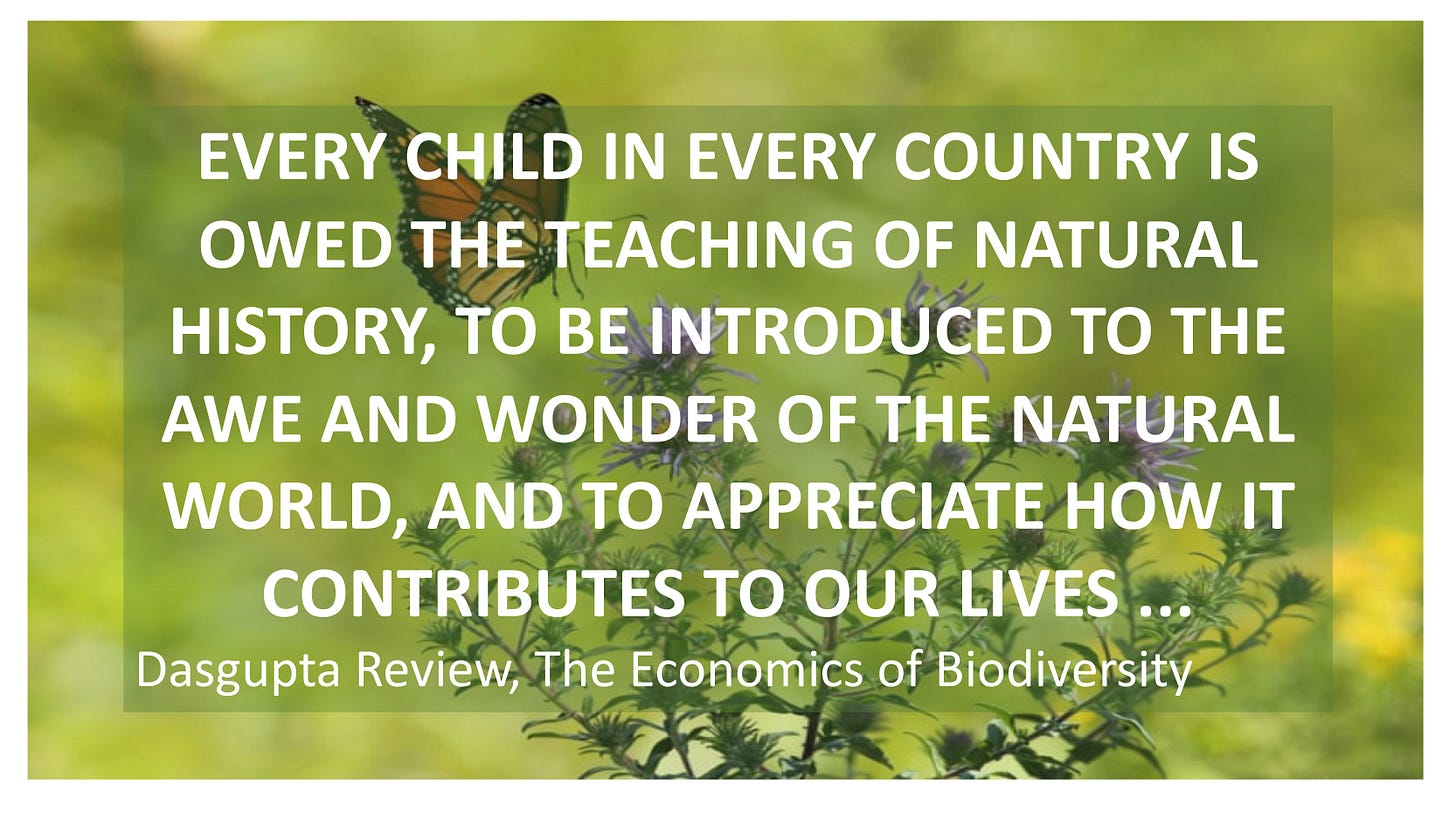Welcome to Regen Notes issue 4, a fortnightly newsletter of regenerative news, stories and more with a sideways focus on the built environment, curated by Martin Brown. Read more from this newsletter and subscribe to get Regen Notes to your inbox here

Economics
The Economics of Biodiversity: The Dasgupta Review, continues to get a lot of climate press coverage, but not that I have noticed within the built environment sector. As noted in RegenNotes 3, central to the Review, and to progress towards an economy that addresses the natural ecology is the inclusion of ecology as a core educational subject.

The UK is to set up green finance hubs in Leeds and London, as part of efforts to encourage lenders and insurers to invest in renewable energy and sustainable industry. Its mission will be to provide data and analytics to financial institutions to support their investment decisions.
“Who would listen to Bill Gates, billionaire, on how to save the planet,” asks Bill Gates. His new book ‘How To Avoid A Climate Disaster’ is receiving a lot of media coverage. Gates focuses on two numbers 51billion and Zero. 51bn being the amount of co2 emitted annually and 0 the number we need to get to by 2050. Worth checking out is his interesting view on what he calls “the juggernaut of emissions generated by the global construction cement and steel industries”
On which CNBC reported this week: “Cement giant turn to green hydrogen and carbon capture in efforts to curb emissions” A subsidiary of multinational building materials firm HeidelbergCement is working with researchers from Swansea University to install and operate a green hydrogen fuelled concrete production demonstration unit at a site in the UK.
Nature
An emerging and important approach to reconnection with nature is in granting natural features legal status. Amidst the US November 2020 elections, legal rights were granted to the Little Wekiva River, Orange County, Florida as having a “right to exist, flow, to be protected against pollution, and to maintain a healthy ecosystem.”
This was an approach that I raised for discussion on a recent workshop session for the ‘“Symbiotisch Bouwen” in the Netherlands. (Whose aim is to demonstrate the application of symbiotic construction by designing and building an innovation pavilion at Kloosters). A question raised was that If nature is seen to be a stakeholder to projects, with legal status, how would Nature be represented, and who will represent, around the briefing, design, construction planning tables?
This approach popped up on the wonderful BBC OutofDoors programme/podcast in a conversation with Allison Phillips UNESCO Chair of Integration at Glasgow University. Allison started the interview with her mihi, (a Maori greeting, introducing yourself through connectivity with land, culture, ancestry and arrival) and explores how Maori land stewardship in New Zealand, led to the recognition of land having a legal personality, where respect for the land as a living growing entity should be taken into account. Although broadcast at 6:30am on Saturday mornings, OutOfDoors is a real early morning treat, it is available through podcasts.
One successful organisation addressing the importance of nature within economics is Ecosia. “Planting forests, one search at a time”, Ecosia is a non-profit organisation that funnels any revenue that isn’t needed to cover its overheads, tax and marketing efforts towards tree planting initiatives. The company founded on green principles is responsible for less than 1% of search worldwide, compared to the whopping 91.39% market share held by Google.
However … the company has planted almost 120 million trees to date, across 9,000 planting sites worldwide. One tree is planted for roughly every 45 searches made via Ecosia, at a current rate of 1.3 trees per second, suggesting five million searches are carried out every day using the service.
Literacy
The question remains how built environment economics will address and move to a regenerative economy, one that takes an “ecological world view in which nature is the model.” How will accountant and surveyor and educational institutions, courses and practices move to embrace a regenerative economic approach?
Many organisations and institutes have now declared climate and ecological emergencies, but as Scott Macaulay pointed out on Zoom Regen 26, emergencies don’t wait for the typical 3 or 5-year academic cycles – or for that matter the 3 or 5-year business planning cycles – they require immediate action.
Scott also illustrated how poorly we understand climate and carbon – not surprising as we have a number of different labels, each with differing descriptions for carbon reduction, carbon neutral, carbon positive and negative and so on.

Read more from this newsletter and subscribe to get Regen Notes to your inbox here
